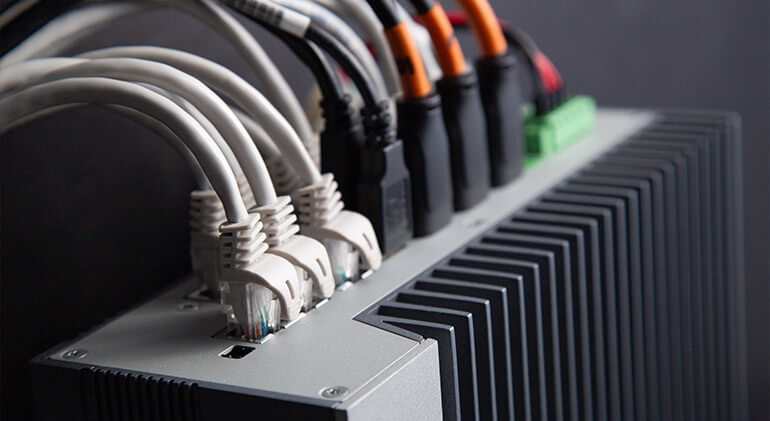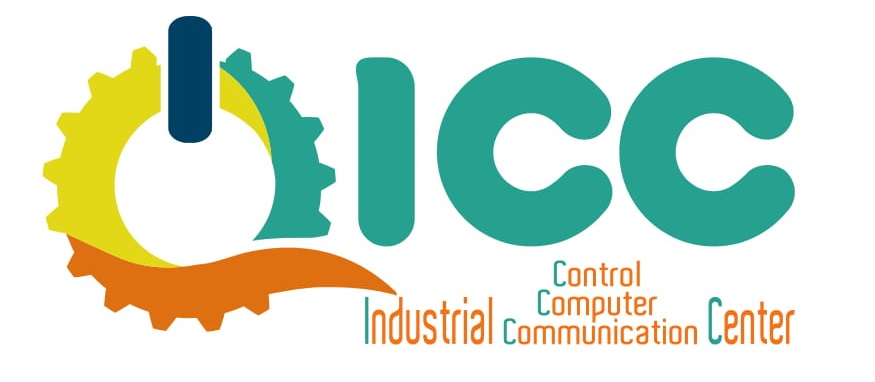

9.01.2024 14:34:08
Digital I/Os and Its Role in Industrial PCs
Posted by: ICC Dijital
Digital I/O and Its Role in Industrial PCs
In the field of industrial automation, the integration of Digital Input/Output (I/O) systems is crucial for controlling and monitoring machines, processes and equipment. Combined with the capabilities of industrial PCs (IPCs), digital I/O plays an important role in running a variety of operations in industrial environments.
Digital I/O: The Backbone of Industrial Control
Digital I/O refers to the interface between a computer system (such as an IPC) and the outside world, typically consisting of binary signals representing 'on' or 'off', 'high' or 'low', '1' or '0'. provides transmission. These signals facilitate communication between the computer and various devices such as sensors, switches, relays, actuators and more.
In the industrial context, digital I/O modules bridge the gap between IPC and the physical world, enabling real-time communication and control over machines and processes. Inputs collect data from sensors, while outputs trigger actions in response to commands from the IPC.
The Importance of Industrial PCs in Digital I/O Systems
Industrial PCs act as the nerve center of many automated systems, offering the ruggedness, reliability and computing power needed to manage complex digital I/O tasks. These special computers are designed to withstand harsh industrial environments, ensuring uninterrupted operation in environments prone to temperature changes, dust, moisture and vibration. Key features of industrial PCs include:
Durability: Made from durable materials and often using fanless cooling systems, IPCs can withstand harsh conditions without sacrificing performance.
Versatility: Supports a variety of I/O interfaces, allowing seamless integration with different digital I/O modules, protocols and communication standards.
Processing Power: IPCs are equipped with powerful processors capable of handling multiple tasks, processing data, and running complex control algorithms required to manage digital I/O operations.
Applications and Benefits
The combination of Digital I/O and Industrial PCs finds application in multiple industries:
Production: On assembly lines, IPCs manage machines by optimizing production efficiency by receiving signals from sensors and issuing commands to actuators.
Monitoring and Control: In industrial facilities, digital I/O facilitates real-time monitoring of critical parameters, triggering alarms or adjustments as needed to maintain safety and operational efficiency.
Automation: IPCs control robotic systems by interpreting digital signals, enabling precise movements and operations in production and logistics.
Data Collection: Digital I/O systems enable the collection of data from a variety of sensors, providing important information for decision making and process optimization.
Integration of digital I/O with Industrial PCs offers several advantages:
Reliability: These systems provide consistent performance in harsh industrial environments, minimizing downtime and increasing productivity.
Flexibility: IPCs can be easily configured and reprogrammed to adapt to changing requirements, ensuring scalability and future-proof systems.
Real-Time Response: Digital I/O operations in IPCs facilitate fast response times, which is crucial in time-sensitive industrial processes.
Future Trends and Challenges
As technology advances, the convergence of Digital I/O and Industrial PCs continues to evolve. Trends such as edge computing, where processing power is moved closer to the data source, are improving real-time processing capabilities, reducing latency and increasing system efficiency.
However, challenges remain, especially regarding cybersecurity. With increased connectivity, securing digital I/O systems against cyber threats becomes crucial and requires robust protocols and encryption methods.
In conclusion
The synergy between digital I/O and Industrial PCs forms the backbone of modern industrial automation. Their integration not only increases operational efficiency, but also enables the development of smarter, more adaptable industrial systems that can meet the demands of today's dynamic manufacturing environment. Ongoing advances in technology promise a future where the seamless integration of Digital I/O and Industrial PCs will continue to drive innovation, revolutionize industrial processes and further optimize productivity.
ICC DIGITAL INDUSTRIAL TECHNOLOGIES Bv.
Wittestraat 103/Bus 2, 2020 Antwerpen Belgium
Phone: +32 486 52 34 00
E-Mail: info@iccdigital.eu
Web: https://www.iccdigital.eu
VAT / BTW: Be 0793.849.582

